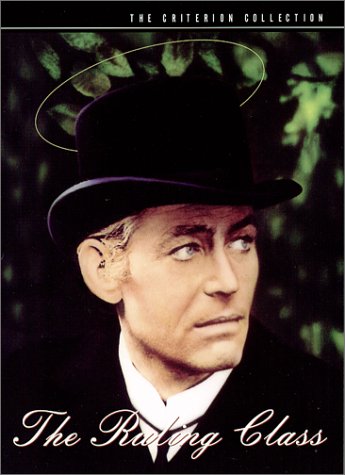Fractured Britain: The Election Campaign of 2015

The main British parties could be in more than spot of bother. Parliament has been dissolved, and what promises to be a rather tart, occasionally vicious campaign is in the offing. If we are to take the figures seriously, a current crop of 40 percent of British voters remain undecided – and in all probability disgusted. Notions of a “uniform swing” to any one side have been dismissed by such papers as The Economist, given an increasingly fragmented Britain.[1]
The pollsters are having a punt that Britain, a country famously hostile to the notion of constructive coalitions over battering adversarial politics, could be in for another term of “give and take”. Much of this may be occasioned by gains made by parties nipping away at the heels of Labour and the Tories. For Labour, a threat is being mounted to the north, where the Scottish National Party is running up the numbers in traditional seats. In Tory-land, there is a distinct possibility that the UK Independence Party is going to do the same.
The marketing techniques of the parties – certainly the major ones – have proven woeful. Labour’s Ed Miliband is desperately going into a cleansing phase, having a good scrub of his socialist credentials after the not so merry assault on his credibility by such characters as Sir John Ritbat. He found himself in some bother when he refused to rule out the possible renationalisation of the British railways. The man with the “image problem” has been doing his best to use it to his advantage, being self-effacing, and attempting to steer the debate into calmer policy waters.
Miliband has, in turn, struck out at the Tories as moving more aggressively into the realm of populism, while also venturing that UKIP’s Nigel Farage would also endorse such policies as “increased NHS privatisation and yet more tax breaks for billionaires.”[2] But he can also rely on the free advertising being provided by Prime Minister David Cameron, who seems transfixed by the “weakness” of his rival for No. 10 (The Guardian, Apr 1). It would seem that the Australian Tory campaign chief, Lynton Crosby, is short on ideas, moving to a form of default tribalism.
Cameron, a the conservative incumbent, hopes to find salvation in the right, even as he inflates his image as spit and polish, followed by a lifeline of trendiness to the young voter. (He admits in Heat magazine being “related to Kim Kardashian.”)[3] This is the usual Blairite nonsense made so popular by New Labour – you sex up the content to show how in touch you are.
The usual blue-collar flirtations are also a must, even if Cameron was always a member of the capital establishment crowned by the Eton trimmings. Asked what he envisaged being when growing up: “All sorts of things: a soldier, a lorry driver, a farmer.” After university, he joined that most un-credible of criminal classes: politics. All in all, Cameron will do anything to avoid either a minority government, or a coalition, though both must figure as distinct possibilities in this election.[4] Majority rule may well be a dream.
The threat being posed by UKIP has made the Tory leader desperate to pull the rug of policy from under Nigel Farage’s clan. There is the usual, unimaginative push for surpluses through savaging public expenditure. Then there is a firm promise to tackle immigration, something that is only feasible if a deal is struck with Brussels.
The usual stock-in-trade mendacity about Britain’s troubled relationship with Europe will also feature with its usual menace. Eurocratic evils across the channel are condemned, often through such adventurous conjectures as threats posed to the Sunday roast by EU rules on energy efficient appliances, or that British taxpayer funds are being channelled into the bullfighting industry.[5]
UKIP knows it can get votes on the board by pressuring Cameron to push for a referendum on EU membership. The conservatives have so far promised that, in the event of victory, they will have one by 2017. Farage has upped the ante – he is seeking a referendum before Christmas.[6] Cleverly, Farage has stolen the show in that regard, suggesting a pact of support with any party willing to go for a poll on Europe.
Loving his cake and wolfing it down as well, Farage avoids any mention of full coalition membership. George Osborne, the current chancellor, has had to fend it off such suggestions. “Even engaging with Nigel Farage is giving credibility where there is none… I don’t think he is a credible participant in this election because the only thing he does is open the door to Ed Miliband” (The Guardian, Mar 15). Tory haemorrhaging to UKIP remains a threatening prospect.
The grouping set for the mightiest losses will be the Liberal Democrats, whose sheep-like members lay down with the Tory wolves with predictable results. This has not stopped their leader, Nick Clegg, from attempting to distance himself from the devastating relationship. “Cows moo. Dogs bark. And Tories cut. It’s in their DNA.” Despite impending losses, the Lib Dems may still be a force in a tight race. A reduction to 30 seats would be disastrous, but not unworkable in a hung parliament. The spectre of a hung parliament remains the greatest terror of the major parties.
Dr. Binoy Kampmark was a Commonwealth Scholar at Selwyn College, Cambridge. He lectures at RMIT University, Melbourne. Email: [email protected]
Notes
[1] http://www.economist.com/blogs/graphicdetail/2015/03/uk-general-election-2015-poll-tracker?zid=309&ah=80dcf288b8561b012f603b9fd9577f0e
[2] http://www.theguardian.com/politics/2015/mar/15/ukip-nigel-farage-support-conservatives-eu-referendum-before-christmas
[3] http://www.telegraph.co.uk/news/politics/david-cameron/11506560/David-Cameron-reveals-he-is-related-to-Kim-Kardashian.html
[4] http://blogs.spectator.co.uk/coffeehouse/2015/03/david-camerons-secret-conversations-about-the-next-coalition/

